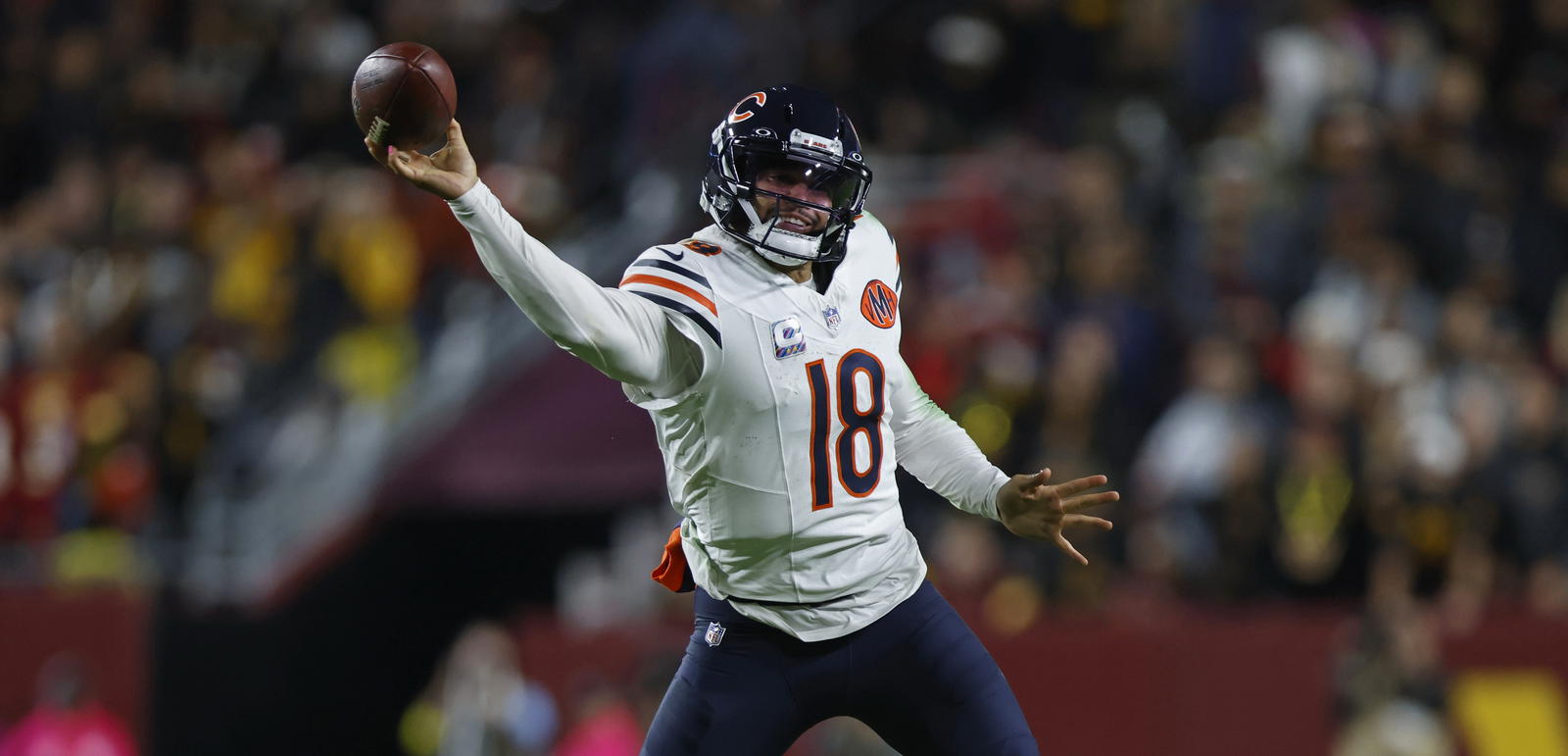

Caleb Williams quietly spearheads Chicago's streak, protecting the ball like a seasoned veteran. This hidden strength is fueling the Bears' surprising wins.
With the Chicago Bears riding a three-game winning streak, a lot of well-earned credit is being thrown around to different aspects of the team.
Ben Johnson’s playcalling and leadership is getting national recognition, with Chicago standing as the only team in the NFL to score 21+ points in each of their first five games and the culture clearly shifting. The offense looks organized, aggressive, and intentional — three words Bears fans haven’t been able to say in a long time.
On the other side of the ball, Dennis Allen’s defense deserves flowers of its own. After a shaky start, the Bears stiffened against the run in Washington, more importantly, they have forced 11 turnovers in the last three weeks. It's not by luck — it's by design.
But there’s a flip side to that stat that isn’t getting nearly enough attention. Yes, the Bears are taking the ball away. But they’re also not giving it back — and that’s where second-year quarterback Caleb Williams enters the conversation.
Chicago currently sits at +8 in turnover margin, tied with the Jacksonville Jaguars for the best mark in the NFL — and the Jags have played one more game.
During this winning streak alone, the Bears have generated those 11 takeaways… and the offense has only coughed it up once — a tipped-ball interception caused by Maxx Crosby of the Raiders. The other turnovers on the year? A desperation pitch on the final play against Minnesota (not really a turnover), a throwaway arm-punt against Detroit, and a D’Andre Swift fumble. Only one of those truly hurt them.
Here’s the point: Caleb Williams isn’t just making big plays — he’s avoiding the back-breaking ones. And he doesn’t get nearly enough credit for it.
This isn’t new, either. As a rookie, Williams threw just six interceptions in 17 starts, posting the third-lowest interception rate in NFL history among rookie quarterbacks with at least 10 starts. Instead of praising him for it, critics twisted it into a flaw — claiming he held the ball too long or avoided risk out of fear.
This year, with better protection, the narrative is shifting. Williams has been sacked just 10 times in five games, ranking in the lower half of the league, and he’s still protecting the football at an elite level. He’s playing mature football, and as a result, the Bears aren’t handing opponents free points. In a league where games are decided by inches and field goals (of both the game-winning and blocked variety), that’s the difference between a 1-4 start… and 3-2 with momentum.
Williams is erasing the losing habits that have haunted this franchise at the quarterback position. For too long, the Bears have been the team that blinks first. The team that hands over momentum. The team that makes the critical mistake.
That’s not happening so far this season.
Ball security isn’t glamorous. It doesn’t go viral like a no-look touchdown or a scramble on third-and-12. But it wins games. And in a season built on resetting the culture and proving that these Bears are different — this might be the most grown-up football Chicago has played in a decade.
And it starts with a quarterback who refuses to give the ball away.

